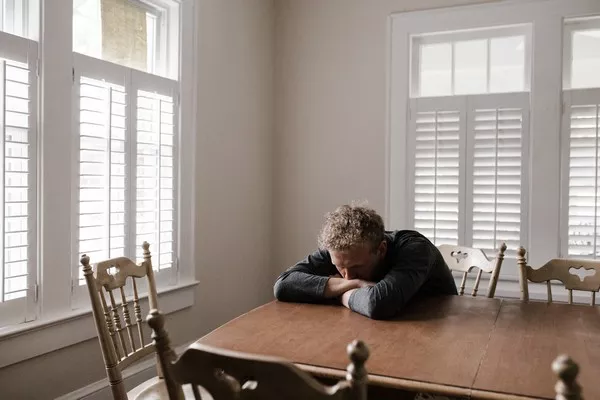In a world where mental health is increasingly recognized as a critical component of overall well-being, the role of a mental health first aider has emerged as an essential aspect of community support and care. Just as traditional first aiders provide crucial assistance in physical health emergencies, mental health first aiders are trained individuals who offer initial support to those experiencing mental health challenges or crises. This article aims to delve into the responsibilities, skills, and importance of mental health first aiders in today’s society.
Mental Health First Aid
Mental health first aid is grounded in the belief that mental health conditions are as valid and deserving of attention as physical health conditions. Similar to how individuals may encounter physical health emergencies such as cardiac arrest or injuries, they may also encounter mental health crises such as panic attacks or suicidal ideation. Mental health first aid aims to equip individuals with the knowledge and skills needed to provide initial support and connect individuals in crisis with appropriate professional help.
Core Responsibilities of a Mental Health First Aider
Recognizing Signs and Symptoms: A fundamental responsibility of a mental health first aider is to recognize signs and symptoms of various mental health conditions. This includes understanding the manifestations of anxiety disorders, depression, psychosis, substance use disorders, and other prevalent conditions.
Offering Reassurance and Support: Providing non-judgmental support and reassurance to individuals experiencing mental health crises is crucial. Mental health first aiders should create a safe and empathetic environment where individuals feel comfortable discussing their challenges.
Listening Actively: Active listening skills are paramount for mental health first aiders. They should listen attentively, without interruption or judgment, allowing the individual to express their feelings and concerns freely.
Assessing Risk and Safety: Mental health first aiders must assess the level of risk and safety of individuals in crisis. This involves evaluating the potential for self-harm, harm to others, or worsening of the individual’s condition.
Providing Information and Resources: Mental health first aiders should be knowledgeable about available mental health resources and services in their community. They can offer information on helplines, support groups, counseling services, and other relevant resources.
Training and Skills Development
Becoming a certified mental health first aider typically involves undergoing specialized training programs. These programs, offered by organizations such as Mental Health First Aid USA or Mental Health First Aid England, provide participants with the knowledge and skills needed to effectively support individuals experiencing mental health challenges. Key components of mental health first aid training include:
Understanding Mental Health: Participants learn about the prevalence of mental health conditions, risk factors, protective factors, and the impact of stigma on seeking help.
Recognizing Common Mental Health Conditions: Training covers the signs, symptoms, and risk factors associated with prevalent mental health conditions such as depression, anxiety, substance use disorders, and psychosis.
Developing Communication Skills: Effective communication skills, including active listening, empathy, and non-verbal communication, are emphasized to facilitate supportive interactions with individuals in crisis.
Assessing and Managing Crisis Situations: Participants learn how to assess the severity of mental health crises and implement appropriate interventions to ensure the safety and well-being of individuals in distress.
Promoting Self-Care and Resilience: Mental health first aid training also emphasizes the importance of self-care and resilience for both the first aider and the individual in crisis. Participants learn strategies for managing stress, setting boundaries, and accessing support when needed.
Importance of Mental Health First Aid in Society
The presence of mental health first aiders in communities can have far-reaching benefits for individuals and society as a whole:
Early Intervention and Support: Mental health first aiders play a crucial role in early intervention, providing timely support to individuals experiencing mental health crises. By addressing issues early on, they can prevent situations from escalating into more severe emergencies.
Reducing Stigma: Through their advocacy and support efforts, mental health first aiders contribute to reducing the stigma surrounding mental illness. By promoting open conversations and understanding, they help create a more accepting and supportive society for those affected by mental health conditions.
Connecting Individuals with Resources: Mental health first aiders serve as bridges between individuals in crisis and professional mental health services. By providing information and guidance, they empower individuals to seek appropriate help and support tailored to their needs.
Building Resilient Communities: The presence of trained mental health first aiders fosters a sense of community resilience. Knowing that support is available in times of need can strengthen community bonds and promote overall well-being.
Promoting Mental Health Literacy: Mental health first aiders contribute to increasing mental health literacy within their communities. By raising awareness and providing education on mental health topics, they empower individuals to recognize signs of distress and take proactive steps to support themselves and others.
Conclusion
In conclusion, mental health first aiders play a vital role in promoting mental health awareness, providing support to individuals in crisis, and fostering resilient communities. Through their training, empathy, and dedication, they offer a beacon of hope for those navigating the complexities of mental illness. As society continues to prioritize mental health as a cornerstone of overall well-being, the role of mental health first aiders will only grow in significance, making our communities healthier, more inclusive, and more supportive for all.
[inline_related_posts title=”You Might Be Interested In” title_align=”left” style=”list” number=”6″ align=”none” ids=”5866,5862,5882″ by=”categories” orderby=”rand” order=”DESC” hide_thumb=”no” thumb_right=”no” views=”no” date=”yes” grid_columns=”2″ post_type=”” tax=””]

































